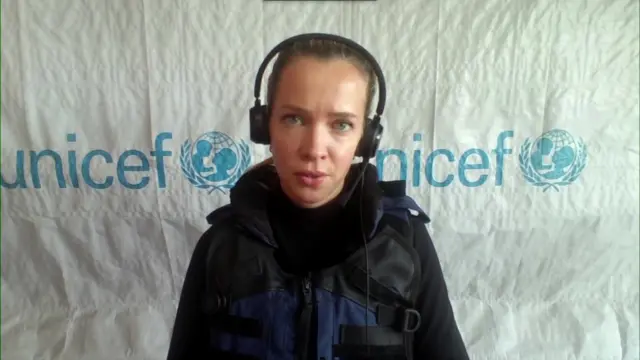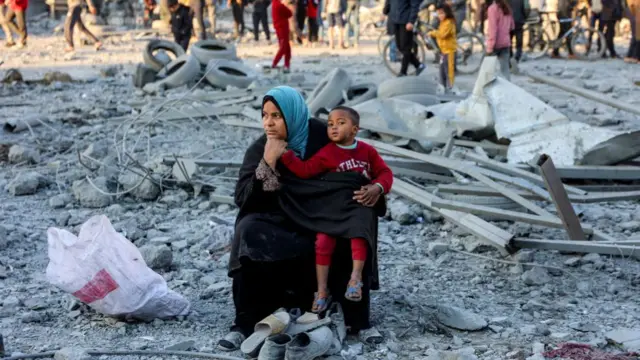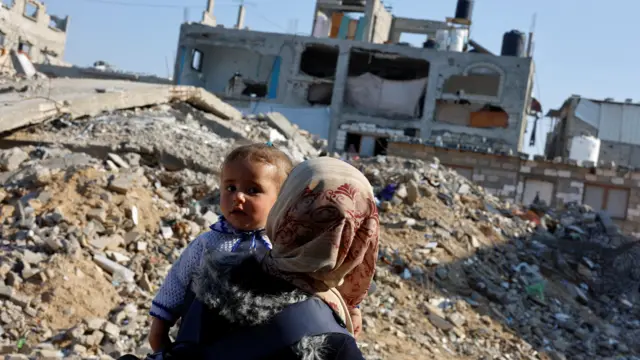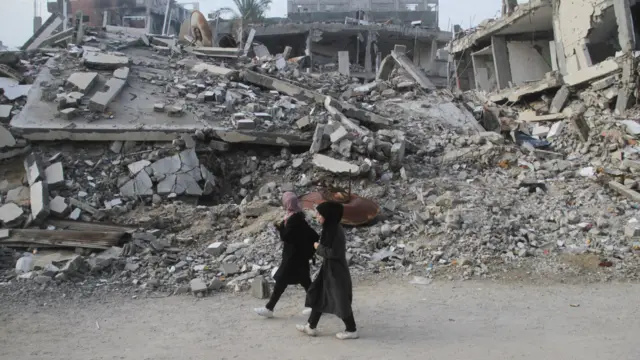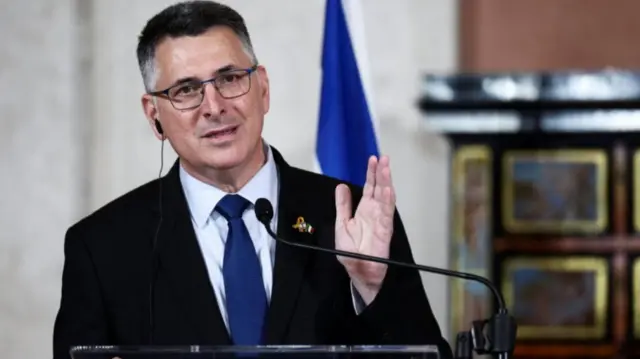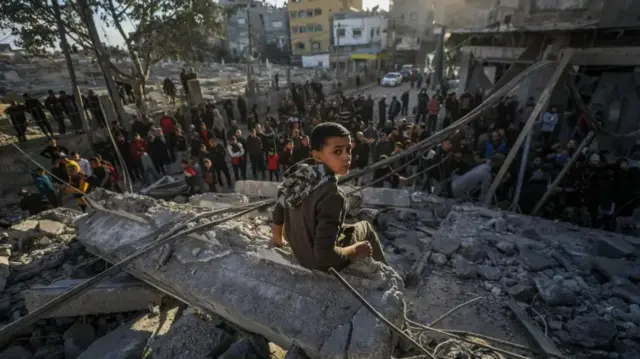
What 15 months of war has done to Gazapublished at 08:44 GMT 18 January
By Nick Eardley & Matt Murphy
BBC Verify has been analysing the scale of the damage caused by the 15-month conflict which has devastated Gaza.
Swathes of infrastructure across the strip has been levelled and more than 46,000 Palestinians have been killed during Israel's military action, according to the Hamas-run health ministry.
The verified image below shows a neighbourhood in Jabalia, northern Gaza, before the conflict and last week.
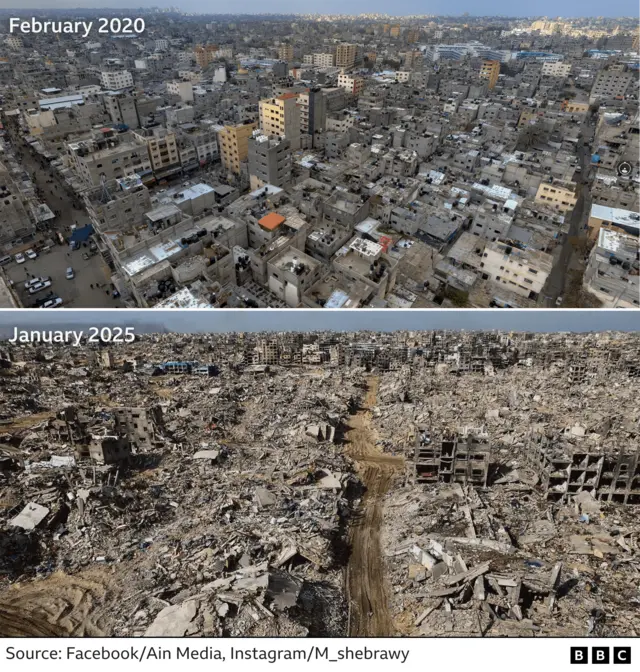
Rebuilding infrastructure - from homes to public facilities - will be a key challenge in the coming years. In May, the UN estimated it could cost $40bn (£32.8bn) to rebuild the strip.
It also estimated that 68% of the road network in the strip had been damaged or destroyed.
